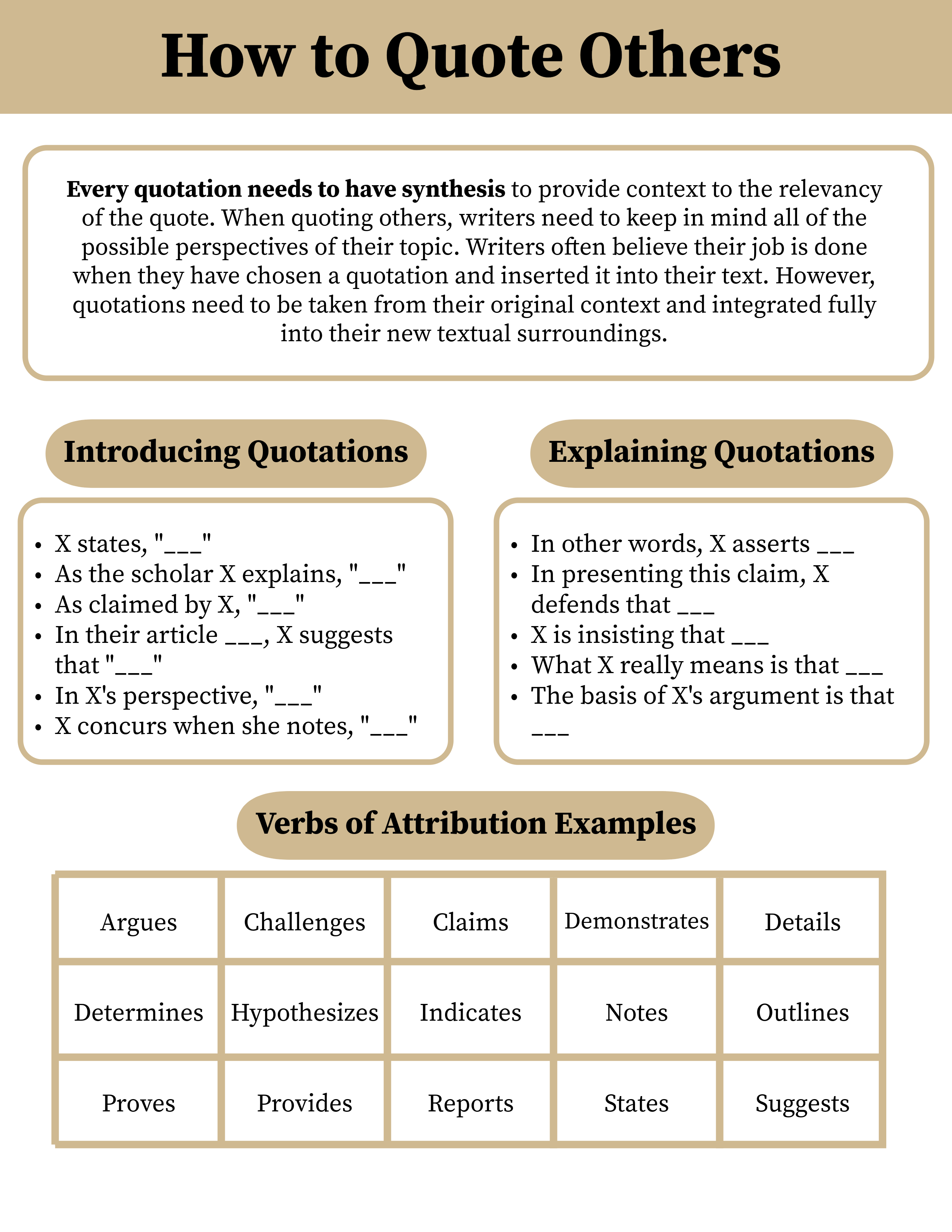Handout: Quoting Others

Welcome to the Purdue OWL
This page is brought to you by the OWL at Purdue University. When printing this page, you must include the entire legal notice.
Copyright ©1995-2018 by The Writing Lab & The OWL at Purdue and Purdue University. All rights reserved. This material may not be published, reproduced, broadcast, rewritten, or redistributed without permission. Use of this site constitutes acceptance of our terms and conditions of fair use.
Using the words of others can be tricky business. You typically only want to use a direct quotation in the following situations: if you’re using that statement as a piece of evidence for your own argument, if you’re establishing another’s position, or if another person has said something better and more clearly than you can. Here are some easy to use tips and templates* for introducing quotations to support your argument:
You may have noticed that when the word “that” is used, the comma frequently becomes unnecessary. This is because the word “that” integrates the quotation with the main clause of your sentence (instead of creating an independent and dependent clause).
Now that you’ve successfully used the quotation in your sentence, it’s time to explain what that quotations means—either in a general sense or in the context of your argument. Here are some templates for explaining quotations:
Interview Situations
1. What was the most exciting thing you did last summer? Explain.
2. Describe a situation when something completely wacky happened.
3. What’s the strangest thing that happened to you at work?
Download this image clicking here
*These templates are derived fromGraf, G., & Birkenstein, C. (2010). They say/I say: The moves that matter in academic writing (2nd ed.). W. W. Norton & Company.
